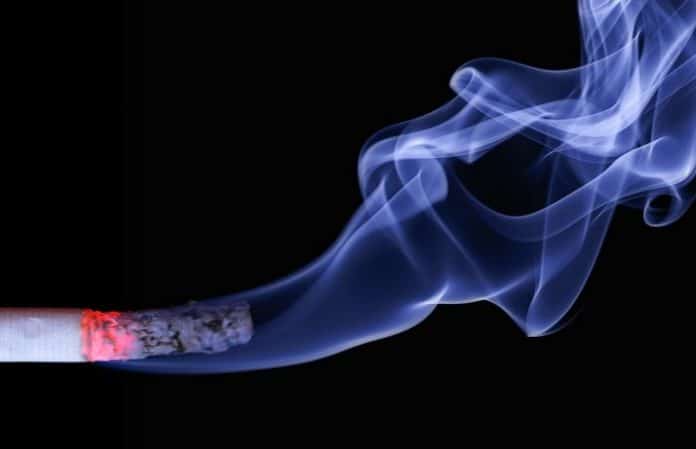New research indicates the cannabinoid cannabidiol (CBD) may be a useful tool in helping those attempting to quit tobacco smoking.
According to TobaccoAtlas, 7.1 million deaths occur annually around the world as a result of smoking-related diseases. While there’s certainly plenty of motivation for smokers to quit, even those trying very hard to can find it a huge challenge.
Addiction is two-pronged – physical compulsion coupled with mental obsession, which is why quitting is so difficult. In the initial stages of withdrawal, smokers are quite likely to find themselves thinking about lighting up very often and visual cues such as seeing others smoking or cigarette advertising (or even non-glamorous images such as the one accompanying this article) can amplify this.
A study by researchers from the Clinical Psychopharmacology Unit at University College London delving into psychological effects of cannabidiol on nicotine withdrawal has found CBD reduced the impact of cigarette cues compared with placebo, after overnight cigarette abstinence in dependent smokers.
The group receiving cannabidiol were administered a single 800‐mg oral dose of the cannabinoid. While it didn’t alleviate craving, withdrawal or any subjectively rated side effects, it would have been interesting to see what a follow up dose or ongoing dosage may have achieved; bearing in mind the length of time between dosing and testing.
Greater attentional bias was demonstrated by the group that only received a placebo. Attentional bias is the tendency for perception to be affected by recurring thoughts at the time.
The randomized, double‐blind cross‐over study was carried out with thirty non‐treatment‐seeking, dependent cigarette smokers recruited from the community.
The study has been published in the journal Addiction.
Lead researcher Chandni Hindocha has carried out a significant amount of other research in relation to cannabis and tobacco smoking. Ms. Hindocha has also previously commented that vaping marijuana has the potential to reduce tobacco smoking in cannabis users.
A previous study led by another Clinical Psychopharmacology Unit researcher, Dr. Celia J.A. Morgan, also demonstrated the potential of CBD in assisting tobacco smokers quit. That study involved smokers given an inhaler (some contained CBD, others a placebo) who were directed to use it when they felt the urge to smoke. While placebo treated smokers showed no differences in tobacco use, those treated with CBD reduced the number of cigarettes smoked by ~40% during treatment.


